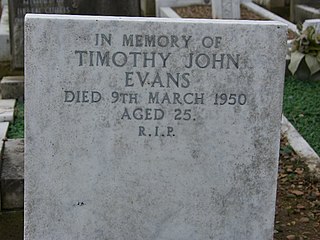
The Federal Bureau of Investigation (FBI) is the domestic intelligence and security service of the United States and its principal federal law enforcement agency. Operating under the jurisdiction of the United States Department of Justice, the FBI is also a member of the U.S. Intelligence Community and reports to both the Attorney General and the Director of National Intelligence. A leading U.S. counterterrorism, counterintelligence, and criminal investigative organization, the FBI has jurisdiction over violations of more than 200 categories of federal crimes.

John Richard Lott Jr. is an American economist, political commentator, and gun rights advocate. Lott was formerly employed at various academic institutions and at the American Enterprise Institute conservative think tank. He is the former president of the Crime Prevention Research Center, a nonprofit he founded in 2013. He worked in the Office of Justice Programs within the U.S. Department of Justice under the Donald Trump administration from October 2020 to January 2021. Lott holds a Ph.D. in economics from UCLA.

Criminal justice is the delivery of justice to those who have been accused of committing crimes. The criminal justice system is a series of government agencies and institutions. Goals include the rehabilitation of offenders, preventing other crimes, and moral support for victims. The primary institutions of the criminal justice system are the police, prosecution and defense lawyers, the courts and the prisons system.

Restorative justice is an approach to justice where one of the responses to a crime is to organize a meeting between the victim and the offender, sometimes with representatives of the wider community. The goal is for them to share their experience of what happened, to discuss who was harmed by the crime and how, and to create a consensus for what the offender can do to repair the harm from the offense. This may include a payment of money given from the offender to the victim, apologies and other amends, and other actions to compensate those affected and to prevent the offender from causing future harm.
Obstruction of justice, in United States jurisdictions, is an act that involves unduly influencing, impeding, or otherwise interfering with the justice system, especially the legal and procedural tasks of prosecutors, investigators, or other government officials. Common law jurisdictions other than the United States tend to use the wider offense of perverting the course of justice.
A violent crime, violent felony, crime of violence or crime of a violent nature is a crime in which an offender or perpetrator uses or threatens to use harmful force upon a victim. This entails both crimes in which the violent act is the objective, such as murder, assault, rape and assassination, as well as crimes in which violence is used as a method of coercion or show of force, such as robbery, extortion and terrorism. Violent crimes may, or may not, be committed with weapons. Depending on the jurisdiction, violent crimes may be regarded with varying severities from homicide to harassment. There have been many theories regarding heat being the cause of an increase in violent crime. Theorists claim that violent crime is persistent during the summer due to the heat, further causing people to become aggressive and commit more violent crime.

Crime films, in the broadest sense, is a film genre inspired by and analogous to the crime fiction literary genre. Films of this genre generally involve various aspects of crime and its detection. Stylistically, the genre may overlap and combine with many other genres, such as drama or gangster film, but also include comedy, and, in turn, is divided into many sub-genres, such as mystery, suspense or noir.

A miscarriage of justice occurs when a grossly unfair outcome occurs in a criminal or civil proceeding, such as the conviction and punishment of a person for a crime they did not commit. Miscarriages are also known as wrongful convictions. Innocent people have sometimes ended up in prison for years before their conviction has eventually been overturned. They may be exonerated if new evidence comes to light or it is determined that the police or prosecutor committed some kind of misconduct at the original trial. In some jurisdictions this leads to the payment of compensation.

The feminist school of criminology is a school of criminology developed in the late 1960s and into the 1970s as a reaction to the general disregard and discrimination of women in the traditional study of crime. It is the view of the feminist school of criminology that a majority of criminological theories were developed through studies on male subjects and focused on male criminality, and that criminologists often would "add women and stir" rather than develop separate theories on female criminality.

Deterrence in relation to criminal offending is the idea or theory that the threat of punishment will deter people from committing crime and reduce the probability and/or level of offending in society. It is one of five objectives that punishment is thought to achieve; the other four objectives are denunciation, incapacitation, retribution and rehabilitation.
The Australian Institute of Criminology (AIC) is Australia's national research and knowledge centre on crime and criminal justice. The Institute seeks to promote justice and reduce crime by undertaking and communicating evidence-based research to inform policy and practice.
The United Nations Interregional Crime and Justice Research Institute (UNICRI) is one of the five United Nations Research and Training Institutes. The Institute was founded in 1968 to assist the international community in formulating and implementing improved policies in the field of crime prevention and criminal justice. Its work currently focuses on Goal 16 of the 2030 Agenda for Sustainable Development, that is centred on promoting peaceful, just and inclusive societies, free from crime and violence.
Prostitution in Northern Ireland is governed by the Human Trafficking and Exploitation Act 2015, which makes it illegal to pay for sex in Northern Ireland. Prior to the act coming into effect, prostitution in Northern Ireland was regulated by the same or similar laws to those in England and Wales, as it is elsewhere in the United Kingdom. At that time, prostitution in Northern Ireland was legal subject to a number of restraints which controlled certain activities associated with prostitution, such as soliciting, procuring, living on the proceeds of prostitution (pimping), exploitation of prostitutes, under-age prostitution, and keeping a brothel. However, devolution provided the opportunity for separate legislation in Northern Ireland.
The Centre for Crime and Justice Studies (CCJS) is a charity based in the United Kingdom focusing on crime and the criminal justice system. It seeks to bring together people involved in criminal justice through various means, including publications, conferences, and courses.
Crime and Delinquency is a peer-reviewed academic journal that publishes papers in the field of Criminology. The journal's editor is Paul E. Tracy. It has been in publication since 1955 and is currently published by SAGE Publications.
Social Justice is a quarterly peer-reviewed academic journal that was established in 1974 as Crime and Social Justice. It absorbed Contemporary Marxism (1980–1986) in 1987 and adopted its current name in 1988. The journal covers research on all aspects of social justice, including issues of crime, police repression, and the penal system; globalization; human and civil rights; immigration issues; welfare and education, ethnic and gender relations, and persistent global inequalities. The editors-in-chief are Stefania De Petris and Gregory Shank.

Hitler's Generals on Trial: The Last War Crimes Tribunal at Nuremberg is a 2010 book by Canadian historian Valerie Hébert dealing with the High Command Trial of 1947–1948. The book covers the criminal case against the defendants, all high-ranking officers of the armed forces of Nazi Germany, as well as the wider societal and historical implications of the trial. The book received generally positive reviews for its mastery of the subject and thorough assessment of the legacy of the trial.

The Commission on Crime Prevention and Criminal Justice (CCPCJ) a functional commission of the United Nations Economic and Social Council (ECOSOC) based in Vienna. The commission serves as the primary organ that guides the activities of the United Nations in the fields of crime prevention and criminal justice.

Public criminology is an approach to criminology that disseminates criminological research beyond academia to broader audiences, such as criminal justice practitioners and the general public. Public criminology is closely tied with “public sociology”, and draws on a long line of intellectuals engaging in public interventions related to crime and justice. Some forms of public criminology are conducted through methods such as classroom education, academic conferences, public lectures, “news-making criminology”, government hearings, newspapers, radio and television broadcasting and press releases. Advocates of public criminology argue that the energies of criminologists should be directed towards "conducting and disseminating research on crime, law, and deviance in dialogue with affected communities." Public criminologists focus on reshaping the image of the criminal and work with communities to find answers to pressing questions. Proponents of public criminology see it as potentially narrowing "the yawning gap between public perceptions and the best available scientific evidence on issues of public concern", a problem they see as especially pertinent to matters of crime and punishment.







